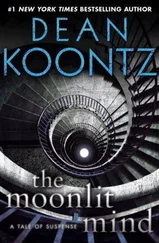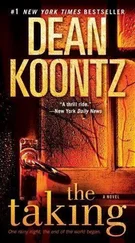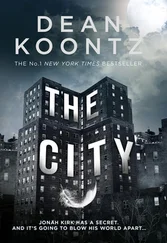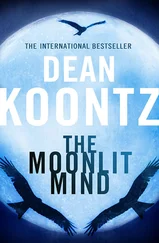When he had stripped away her clothes and her defenses, he would shove the wadded poster down her throat, clamp her mouth shut, and insist that she swallow it, and when it proved too much to swallow, he would let her gag it up, only so that he could shove it somewhere else, and then somewhere else again, and shove other things, too, shove in anything he wanted, until she pleaded with him to kill her.
Unfortunately, he lived in an age when such measures were sometimes necessary.
Returning to the mirror, he liked what he saw, as before. Judging by his reflection, he possessed a blameless heart, and his thoughts were full of charity.
Appearances were important. Appearances were all that really mattered. And his work.
In her well-ordered bathroom vanity, he didn’t find anything of interest except a brand of lip balm that he had never used.
Lately, humidity had been low, and his lips had been constantly chapped. The product that he usually relied upon had not helped much.
He smelled the balm and detected no offensive perfume, licked it and tasted an acceptably bland orange-cream flavor. He greased his lips, which at once felt cooler, and pocketed the tube.
In the living room, Krait pulled from the shelves some of the old hardcover books in the woman’s collection. They had quaint but colorful jackets, and were all fiction by popular novelists of the 1920s and ’30s: Earl Derr Biggers, Mary Roberts Rinehart, E. Phillips Oppenheim, J. B. Priestley, Frank Swinnerton…. With the exceptions of Somerset Maugham and P.G. Wodehouse, most were forgotten.
Krait might have taken a book that looked interesting, except that these authors were all dead. When he read a book that expressed inappropriate views, Krait sometimes felt obliged to search out the author and correct him. He never read books by dead authors because the satisfaction of a face-to-face discussion with a living wordsmith could not be equaled by exhumation and desecration of an author’s corpse.
In the kitchen, he found two dirty coffee mugs in the sink. He stood for a while, considering them.
As neat as she was, Linda would not have left this mess unless she had an urgent reason to get out of the house. A companion had joined her for coffee. Perhaps the companion had convinced her that she dared not delay long enough to wash the mugs.
In addition to what the mugs suggested, Krait was interested in the one with the parrot handle. He found it charming. He washed it, dried it, and wrapped it in a dishtowel to take it with him.
A knife was missing from the rack of fine cutlery, and that was interesting, too.
From the refrigerator, he withdrew the remaining half of a cinnamon-dusted homemade egg-custard pie. He cut a generous slice for himself and put it on a plate. He put the plate on the kitchen table, with a fork.
He poured a cup of coffee from the pot that stood on the warming plate. The brew had not yet turned bitter. He laced it with milk.
Sitting at the table, he studied the ’39 Ford while he ate the pie and drank the coffee. The egg custard was excellent. He would have to remember to compliment her on it.
As he finished the coffee, his cell phone vibrated. When he checked, he had received a text message.
Earlier, when Krait had returned to the Lamplighter Tavern, seeking the name of the big man on the end stool, the bartender had pleaded ignorance.
Five minutes after Krait left the joint, however, Liam Rooney had phoned someone. In this text message were the number that had been called and the name of the person to whom that telephone was registered—TIMOTHY CARRIER.
On screen appeared an address for Carrier, too, although Krait doubted that it would be of immediate use to him. If Carrier was the barfly and if he had hurried to Laguna Beach to warn the woman, he would not be witless enough to return home.
In addition to a name and address, Krait had wanted to know the occupation of this guy. Carrier was a licensed masonry contractor.
Krait stored the data, and the phone vibrated again. A photo of the mason appeared with megapixel clarity, and he was without doubt the man in the tavern.
In the wet of business, Krait worked alone, but he had awesome data and technical support.
He pocketed the phone without saving the photo. He might need to know more about Carrier, but not yet.
A final cup of coffee remained in the pot, and he sweetened the brew with a generous slug of milk. He drank it at the table.
In spite of the boldness with which the kitchen and garage had been combined, the space was cozy.
He liked the entire bungalow, the clean simplicity of it. Anyone could live here, and you wouldn’t know who he really was.
Sooner or later, it would come on the market. Acquiring the property of a person he had murdered would be too risky, but the thought pleased him.
Krait washed his cup, his plate, his fork, the coffeepot, and the FDR mug that had been used by either Linda or her guest. He dried them and put them away. He rinsed the stainless-steel sink, then wiped it dry with paper towels.
Just before he left, he went to the Ford, opened the driver’s door, stepped back just far enough to avoid being splashed, unzipped his pants and urinated in the vehicle. This didn’t please him, but it was necessary.
Eight
Pete Santo lived in a modest stucco house with a shy dog named Zoey and a dead fish named Lucille.
Handsomely stuffed and mounted, Lucille, a marlin, hung above the desk in the study.
Pete wasn’t a fisherman. The marlin had come with the house when he bought it.
He had named it after his ex-wife, who had divorced him when, after two years of marriage, she realized that she couldn’t change him. She wanted him to leave the police department, to become a real-estate agent, to dress with more style, and to have his scar fixed.
The marriage collapsed when she bought him a pair of tasseled loafers. He wouldn’t wear them. She wouldn’t return them to the store. He wouldn’t allow them in his closet. She tried to put one of them down the garbage disposal. The Roto-Rooter bill was huge.
Now, as sharp-toothed Lucille peered down at him with one glaring gimlet eye, Pete Santo stood at his desk, watching as the Department of Motor Vehicles home page appeared on the computer screen. “If you can’t tell me what it’s about, who could you tell?”
Tim said, “Nobody. Not yet. Maybe in a day, two days, when things … clarify.”
“What things?”
“The unclarified things.”
“Oh. That’s clear now. When the unclarified things clarify, then you can tell me.”
“Maybe. Look, I know this might get your ass in a sling.”
“That doesn’t matter.”
“Of course it matters,” Tim said.
“Don’t insult me. It doesn’t matter.” Pete sat at the computer. “If they bust me out of the department, I’ll be a real-estate agent.”
He entered his name, badge number, and access code, whereupon the Department of Motor Vehicles records surrendered to him as a nubile maiden to a lover.
Bashful Zoey, a black Lab, watched from behind an armchair, while Linda dropped to one knee and, with cooing sounds and declarations of adoration, tried to coax the dog into the open.
Pete typed the license number that Tim had given him, and the DMV database revealed that the plates had been issued for a white Chevrolet registered not to any law-enforcement agency but to one Richard Lee Kravet.
“You know him?” Pete asked.
Tim shook his head. “Never heard of him. I thought the car would turn out to be a plainwrap department sedan.”
Surprised, Pete said, “This guy you want to know about—he’s a cop? I’m scoping out a cop for you?”
“If he’s a cop, he’s a bad cop.”
“Look at me here, what I’m doing for you, using police power for a private inquiry. I’m a bad cop.”
Читать дальше










